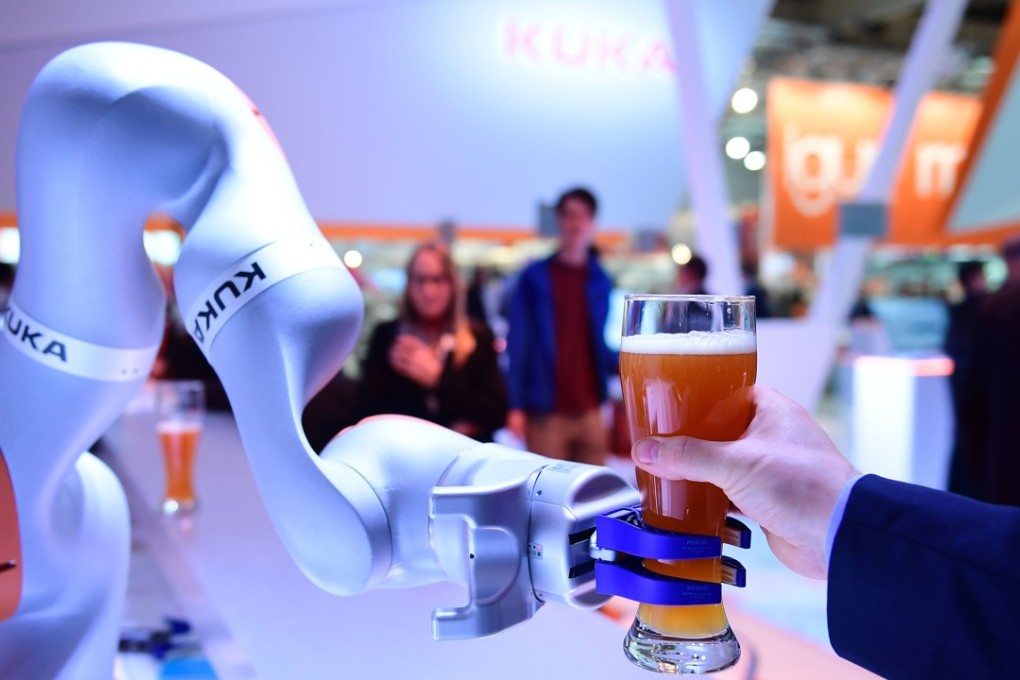German robot maker Kuka eyes €1b sales in China by tapping parent’s Midea Group’s network
Expansion of Kuka’s facilities in Shanghai will be completed by the second quarter of this year

German robot maker Kuka is envisioning sales of €1 billion (US$1.24 billion) in China by 2020, more than double its current business in the world’s largest robotics market by leveraging parent Midea Group’s local network.
“We have to speed up and make it happen quickly,” said Wilfried Eberhardt, chief marketing officer of Kuka, adding that combining Kuka’s innovative DNA with Midea’s high-volume electrical appliance production bodes well for the robot maker’s outlook in China.
In late 2016, Midea paid US$5 billion to take over Kuka, after it bought an 80.1 per cent stake in Toshiba’s home appliance unit in March 2016.
Kuka’s sales on the mainland stand at €450 million now.
China is expected to have 1 million industrial robots in operation by 2025, from about 300,000 units in 2016, according to the International Federation of Robotics.
The country’s ramped-up efforts to improve manufacturing efficiency and move its products up the value chain have ushered in strong demand for automation amid an ageing population.